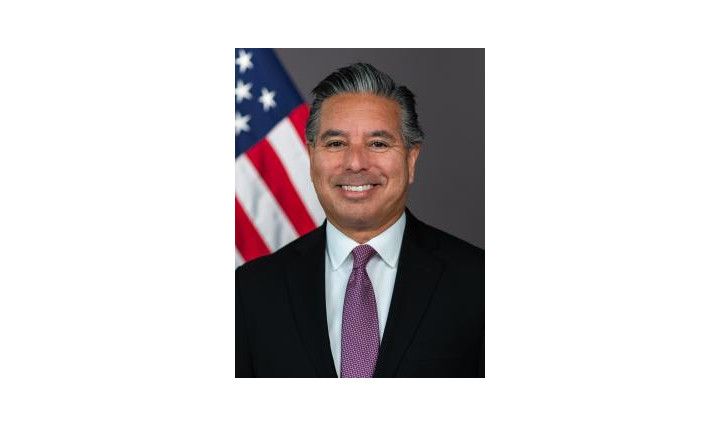Lizárraga: "Although this rule imposes some recordkeeping obligations on broker-dealers, it does not require market participants to track whether short-sellers cover their short sales or report bona fide market-making information on a regular basis."

Source: https://www.sec.gov/news/statement/lizarraga-statement-short-sale-101323
As with securities lending, short sales, provided they are conducted in compliance with applicable rules, can play a valuable price discovery role in our capital markets. That said, they can sometimes contribute to, or even cause, precipitous price declines, facilitate market manipulation, and generate market uncertainty and volatility.
To minimize the gap between these benefits and downsides, the Commission’s action today strikes the appropriate balance between increased transparency for investors and regulators of short sale-related data, and concerns about real-time disclosure of trading strategies.
Currently, Regulation SHO is the primary rule governing short sales of equities. Although this rule imposes some recordkeeping obligations on broker-dealers, it does not require market participants to track whether short-sellers cover their short sales or report bona fide market-making information on a regular basis.
Today’s rule will shine a light on short sale activity by institutional investment managers. It fills gaps in the data these managers currently report about their monthly and daily short sale activities.
This data is essential for the Commission to assess and monitor risks related to large short positions, for reconstructing market events, and for deterring fraud, manipulation, and other potential market abuses.
By improving market visibility, today’s reforms will also make the price discovery function that shorts can play more robust and transparent. By making available additional information about variation in short positions, as well as sentiment in the market during a specific timeframe, the rule may increase price efficiency and help market participants in making more informed trading decisions.
Overall, the short sale disclosure rule will increase transparency, enhance market oversight, and reduce systemic risk from large, short-selling positions. The rule complements the action the Commission has taken today to address transparency in the securities lending market, especially the public disclosure of securities lending information.
Through both actions, we fulfill the mandate that Congress gave us under the Dodd-Frank Act and our mission to promote fair and transparent markets. The cumulative impact of these reforms is positive and benefits the public interest and the investing public we have a responsibility to serve.
I am pleased to support the short sale disclosure rule and join my fellow Commissioners in thanking Commission staff for their hard work on this difficult issue.
What is he talking about?


Fact Sheet


Press Release:
The Securities and Exchange Commission today adopted new Rule 13f-2 to provide greater transparency to investors and other market participants by increasing the public availability of short sale related data. Congress directed the SEC in Section 929X of the Dodd-Frank Act of 2010 to promulgate rules to make certain short sale data publicly available.
“In the wake of the 2008 financial crisis, Congress directed the SEC to enhance the transparency of short selling of equity securities,” said SEC Chair Gary Gensler. “Today’s adoption will promote greater transparency about short selling both to regulators and the public. This rule addresses Congress’s mandate and improves upon existing sources of short sale-related data in the equity markets. Given past market events, it’s important for the Commission and the public to know more about short sale activity in the equity markets, especially in times of stress or volatility.”
Specifically, Rule 13f-2 will require institutional investment managers that meet or exceed certain thresholds to report on Form SHO specified short position data and short activity data for equity securities. The Commission will aggregate the resulting data by security, thereby maintaining the confidentiality of the reporting managers, and publicly disseminate the aggregated data via EDGAR on a delayed basis. This new data will supplement the short sale data that is currently publicly available.
Relatedly, the Commission today also adopted an amendment to the National Market System Plan (NMS Plan) governing the consolidated audit trail (CAT). The amendment to the NMS Plan governing the CAT (CAT NMS Plan) will require each CAT reporting firm that is reporting short sales to indicate when it is asserting use of the bona fide market making exception in Rule 203(b)(2)(iii) of Regulation SHO.
The adopting release for Rule 13f-2 and related Form SHO, as well as the notice of the amendment to the CAT NMS Plan, will be published in the Federal Register. The final rule, Form SHO, and the amendment to the CAT NMS Plan will become effective 60 days after publication of the adopting release in the Federal Register. The compliance date for Rule 13f-2 and Form SHO will be 12 months after the effective date of the adopting release, with public aggregated reporting to follow three months later, and the compliance date for the amendment to the CAT NMS Plan will be 18 months after the effective date of the adopting release.

TLDRS:
- SEC Adopts Rule to Increase Transparency Into Short Selling and Amendment to CAT NMS Plan for Purposes of Short Sale Data Collection.
- Commissioner Jaime Lizárraga: "Although this rule imposes some recordkeeping obligations on broker-dealers, it does not require market participants to track whether short-sellers cover their short sales or report bona fide market-making information on a regular basis."
- Rule 13f-2 and Form SHO: Rule 13f-2 will require a Manager to file a Form SHO report via the Commission’s EDGAR system within 14 calendar days after the end of each calendar month with regard to:
- Each equity security that is of a class of securities that is registered pursuant to Section 12 of the Exchange Act or for which the issuer of that class of securities is required to file reports pursuant to Section 15(d) of the Exchange Act (“Reporting Company Issuer”) over which the Manager and all accounts over which the Manager (or any person under the Manager’s control) has investment discretion with respect to a monthly average gross short position that meets or exceeds a prescribed reporting threshold
- Each equity security that is of a class of securities of an issuer that is not a Reporting Company Issuer over which the Manager and all accounts over which the Manager (or any person under the Manager’s control) has investment discretion with respect to a gross short position that meets or exceeds a prescribed reporting threshold.
For each reported equity security, a Manager will be required to report on Form SHO certain information, including:
- The Manager’s end-of-month gross short position in the equity security at the close of regular trading hours on the last settlement date of the calendar month
- For each individual settlement date during the calendar month, the Manager’s “net” activity in the reported equity security, which includes activity in derivatives, such as options.
- The Commission will then publish, through EDGAR, and on a slightly delayed basis, certain aggregated short sale related information regarding each equity security reported by Managers on Form SHO



